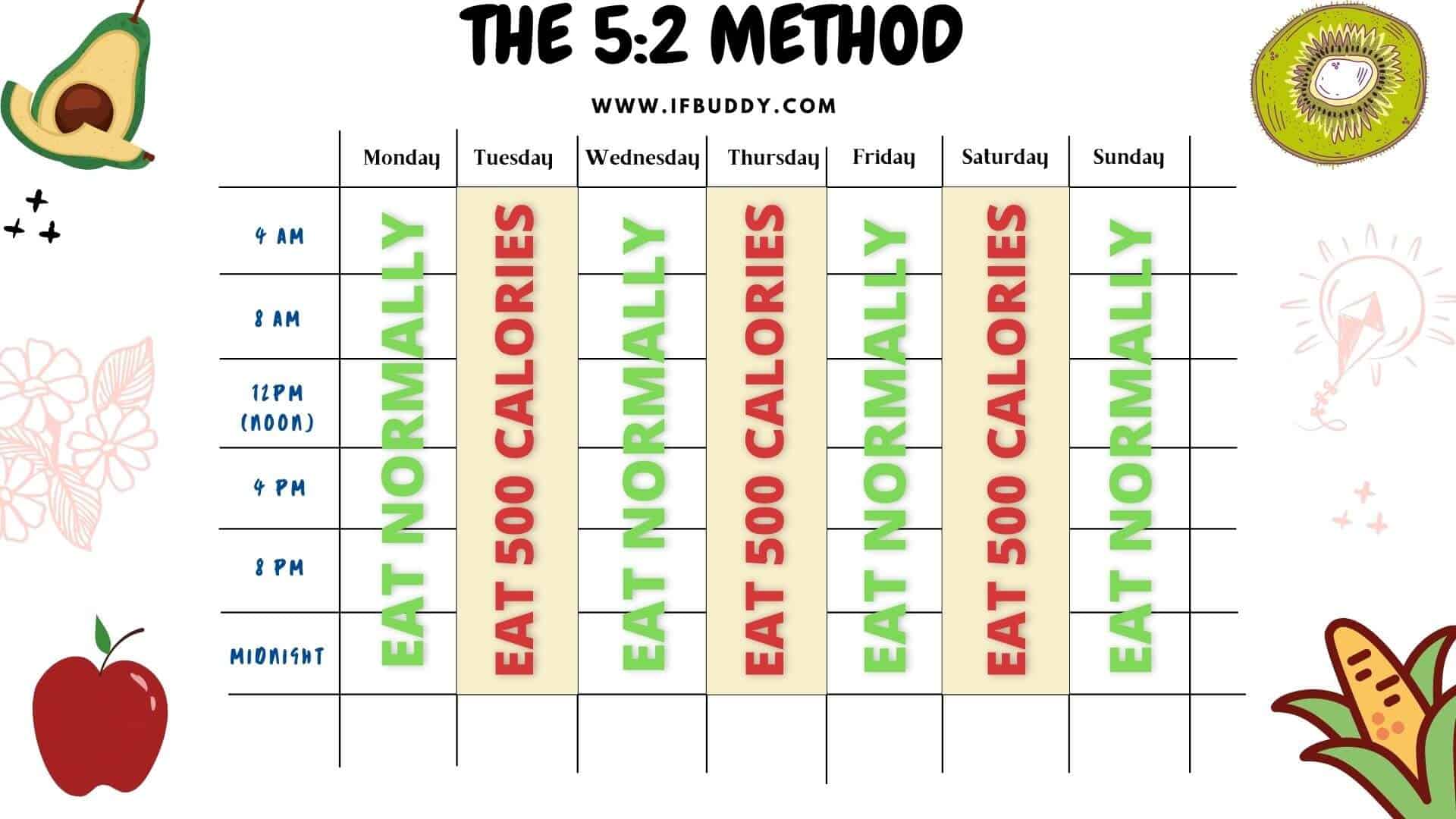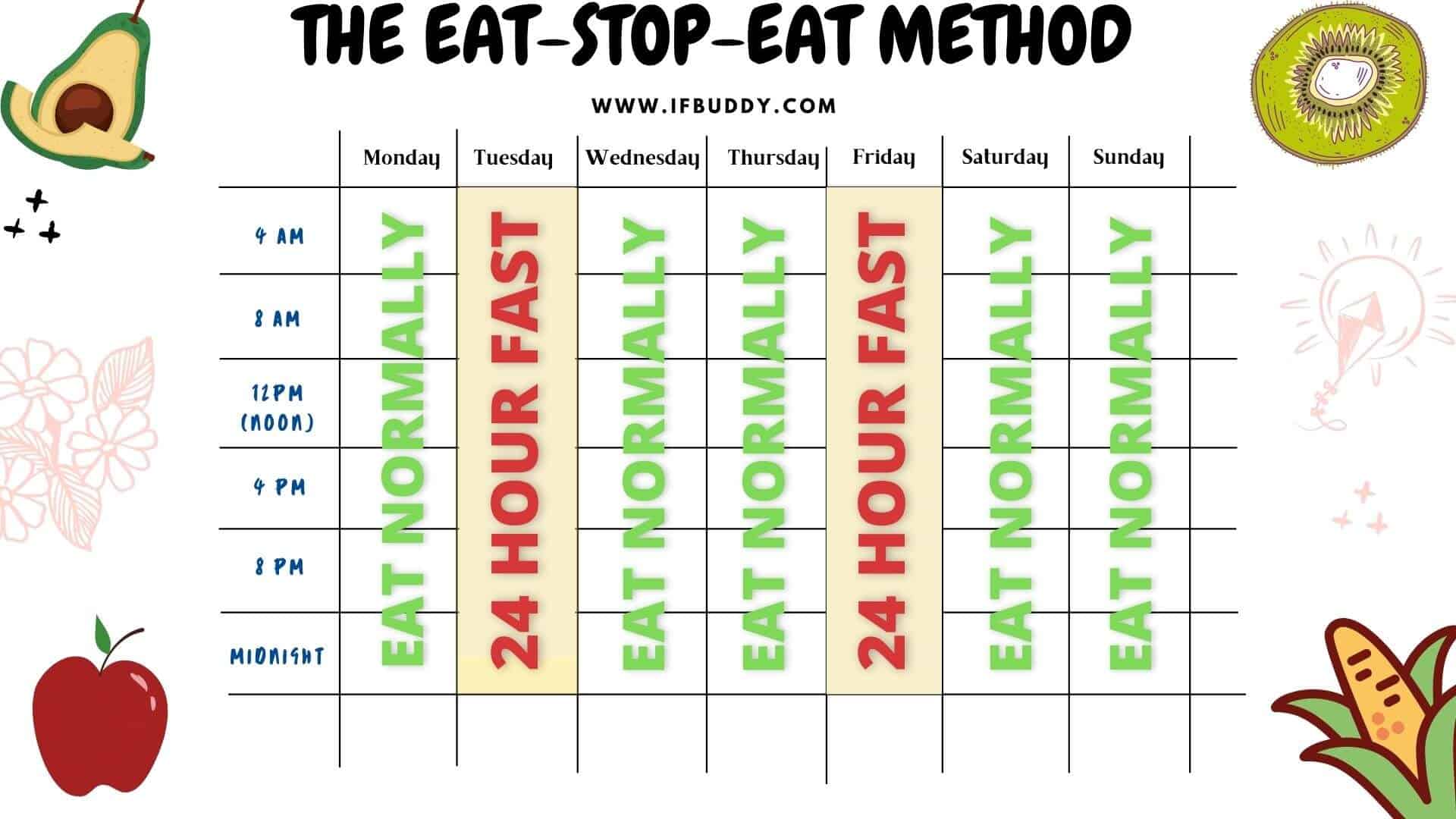Intermittent fasting is one of the most popular health trends that have been promoted for weight management and disease prevention. Over the years, different methods of Intermittent Fasting have gained popularity. Several studies have shown that intermittent fasting has powerful effects on your body and brain. But since most of these studies have been done with adults and not with teenagers, you might ask yourself: Is Intermittent Fasting safe for teens?
Intermittent Fasting (IF) is perfectly safe for teens. In fact, it is probably very easy for teens to follow. Longer fasts could get critical (20 hours), which is why it is recommended that teens just skip their first meal and break their fast around noon. That way the body has no chance to go into starvation mode.
Today we’ll take a look at why teenagers can’t fast like adults, and what other options you have as a teen except 16/8.
Is Intermittent Fasting Good for Teens?
Intermittent Fasting is very good for teens unless they start to be very strict about their eating windows. Young people should consider doing the 16/8 eating window, since it is the safest and won’t interfere with their growth. It can especially help teenager that are obese or overweight – but even then, keep it easy, to make sure your body doesn’t switch to starvation mode.
Why do teens try intermittent fasting?
Many teenagers are inclined towards intermittent fasting because of several reasons. One of the reasons includes its adaptability. It is easier to follow than conventional types of dieting because it restricts when to eat, not necessarily what to eat. Most of the intermittent fasting plans focus on eating whole, natural, and nutritious foods. However, low-calorie beverages (like coffee or tea) are okay during fasting periods. But even more important is to stay hydrated, which is why it is recommended to drink a lot of water.
Teenagers who are overweight usually try intermittent fasting because the pattern of IF easily fits into their schedule without too many changes. Most of the teenagers tend to snack all day because this is their growing age and they need a lot of nutrients and energy. However, this is not a beneficial habit for them. With intermittent fasting, the number of meals is controlled.
When should teens try intermittent fasting?
Teens should consider intermittent fasting if:
- They are obese or overweight
- They don’t stay fasted for longer than 20 hours
- Their doctor recommends an IF eating pattern
Intermittent fasting could be difficult in its initial phase, but as your body adjusts to the new way of consuming food, intermittent fasting gets easier. The whole idea of intermittent fasting revolves around the awareness of what and when to eat.
When should teens not try intermittent fasting?
Teens should not consider intermittent fasting if:
- Someone has or had an eating disorder in the past
- Doesn’t know much about intermittent fasting and it’s consequences if done wrong
- Any teenager is sick or has any other health issues like diabetes, PCOS, thyroid problem, etc.
- Someone is underweight or is suffering from anorexia
- Someone is on medication (Can you take medicine while intermittent fasting?)
- If a doctor doesn’t recommend intermittent fasting
- Someone is pregnant or breastfeeding
Does intermittent fasting stunt growth?
No – it can actually promote your growth (Does intermittent fasting make you grow?). It could stunt your growth if you do a long-term reduced-calorie fast because you won’t get the nutrition you need. That is because starvation diets (under 1000 calories) cause a slow metabolic system. In order to prevent this, you just shouldn’t stay fasted for longer than 20 hours. The 16/8 protocol might just be right for teenagers.
Make sure you get a lot of vitamins and minerals. Even more important, make sure to eat the right foods ( 13 Best Foods to Eat after Fasting (science-backed) ).
Eating the right nutrition is essential
“Well, I fasted for the entire morning, so I can go eat fast food now.”
While you can, you shouldn’t. You shouldn’t dive in and eat whatever you want just because you restrict your eating timezones. Progress will quickly reverse if you do this often. Fast food only fills you up temporarily. Healthy food, on the other hand, makes you feel full for longer. Make sure to include a lot of vegetables. ( 8 Best Vegetables for Intermittent Fasting )
While this doesn’t mean you’re not allowed to eat fast food ever, you should always focus on eating real foods with low sugar. This guarantees that you will see results faster. Intermittent fasting won’t be as effective for you if you continue to eat unhealthy, high-calorie meals.
Benefits for Teens
As mentioned in the introduction, there has been quite some research done on intermittent fasting and fasting in general. Unfortunately, all the completed studies have been done for adults.
So to give a definitive answer for teenagers, we need high-quality and long-term research to determine the effective benefits of intermittent fasting for any age group.
IF comes with a very promising list of health benefits. The following are some of the potential health benefits for teens:
- Boosts weight and fat loss
- Reduces insulin resistance and lowers the risk of type 2 diabetes
- It can reduce inflammation and oxidative stress
- Extended life span
- Improves cardiovascular health
Side effects for teens
Teenagers might experience different effects than adults. The effects could also be stronger.
Adults often experience bad physical activity because of a lot of hunger (you feel weak, movement makes you tired)
You will face hunger and will experience all kinds of downsides. Feeling hunger is inevitable, and once you see others eat typical everyday meals or snacks your hunger will get even bigger. (Yes, I’m speaking of my own experience)
So make sure to stay active, move around a lot, and maybe implement a HIIT workout into your week.
What intermittent fasting methods should teens consider?
There are all kinds of intermittent fasting methods. But teens should make it a priority to reach their caloric needs. Being in a calorie deficit is not recommended while the body is still developing. Let’s take a look at three recommended methods.
16/8

In this approach, breakfast gets skipped and you limit yourself to an 8-hour eating window. A common fasting window would be 8 pm – 12 am. So from noon till 8 pm, you’re allowed to eat. With this method, you can easily prevent yourself from consuming late-night snacks.
The 16/8 method is without doubt one of the simplest, most sustainable, and easiest methods to follow. It is also the most popular.
5/2

During this method, you usually eat about 500-800 calories for 2 days of the week and eat normally for the other 5 days. There has to be one normal eating day in between the calorie-restricted day. This method is not only hard to do, but teens should also avoid it. Eating too much under the calorie need as a teenager is not considered healthy.
Eat-Stop-Eat

This is another hard approach. You usually fast once or twice a week – for 24 hours. After that, you eat normally again for the remaining days. Again, this is a method that teens should not follow. Not eating for 24 hours is very critical for teenagers, as they need their calorie needs to develop and grow.
So, which method is it?
Teens should only be considering 16/8, where fasting for 16 hours is the maximum. You can also just do a 12/12 fast. But if you want to lose fat or weight, following a 16/8 time plan should put you on the right track.
Bottomline
It has been experienced, that some teens who skip their meals are more likely to develop eating disorders. At a young age, your body is likely still developing physically, which is why you require more food. This is why generally you shouldn’t go on a conventional diet. Wrong dieting can not only lead to changes in blood sugar levels, fatigue, or a lack of concentration, it could also lead to a disordered eating pattern. Intermittent Fasting is different from that. It can give a teenager all the benefits it needs in the fasting window, while still filling the body with the required calories in the feeding window.
If you’re a teenager you should be good by following the 16/8 fasting method. And just in case your body reacts in a weird way, it is always possible to stop intermittent fasting and start again once you’re older.


2 thoughts on “Is Intermittent Fasting Safe for Teens?”